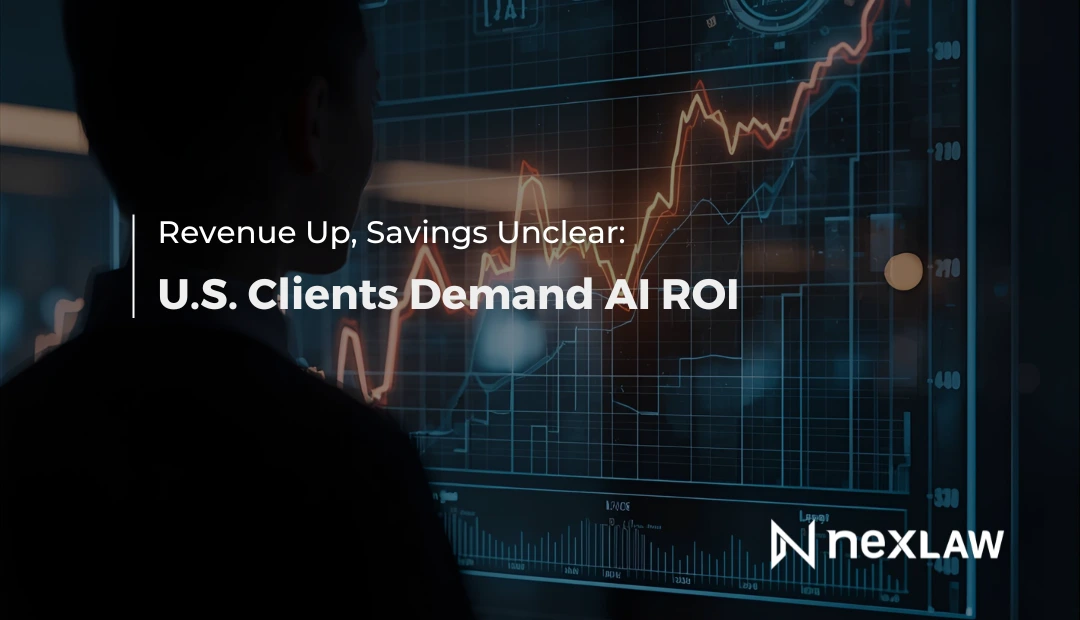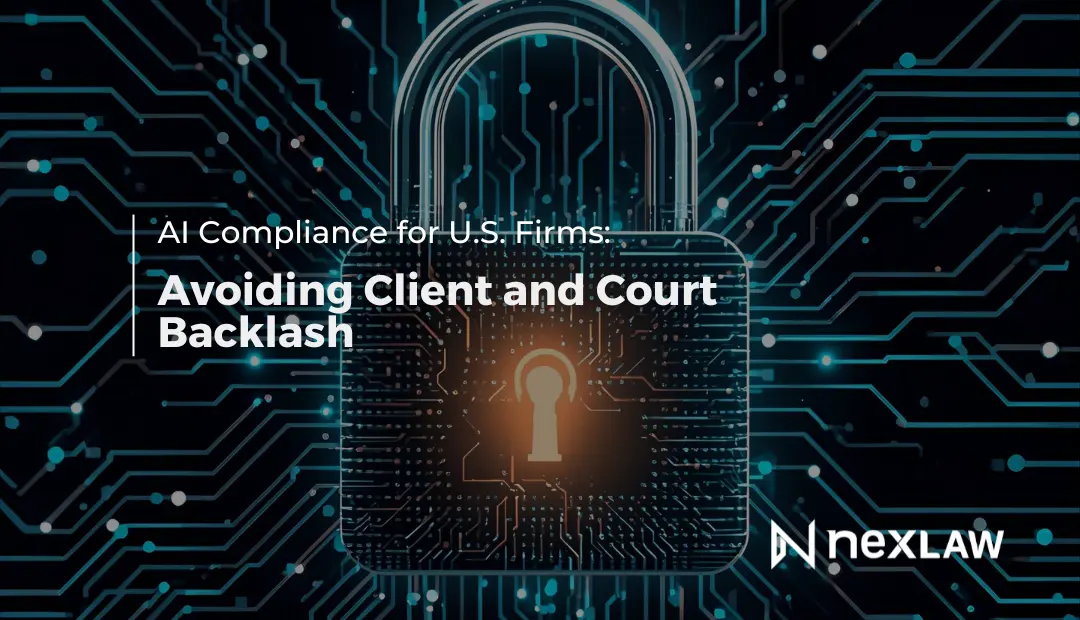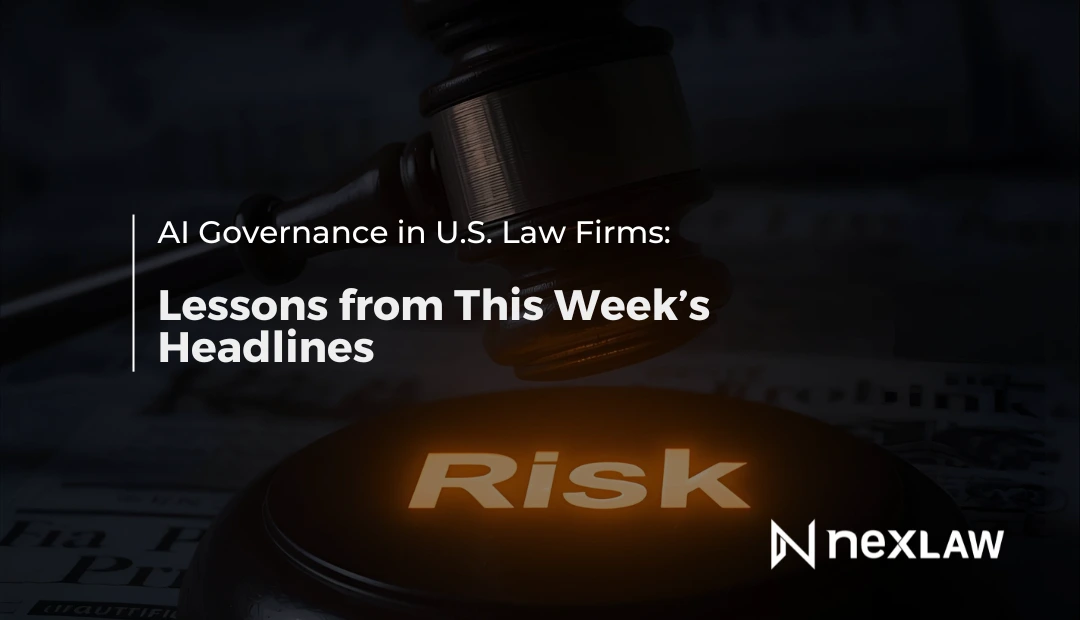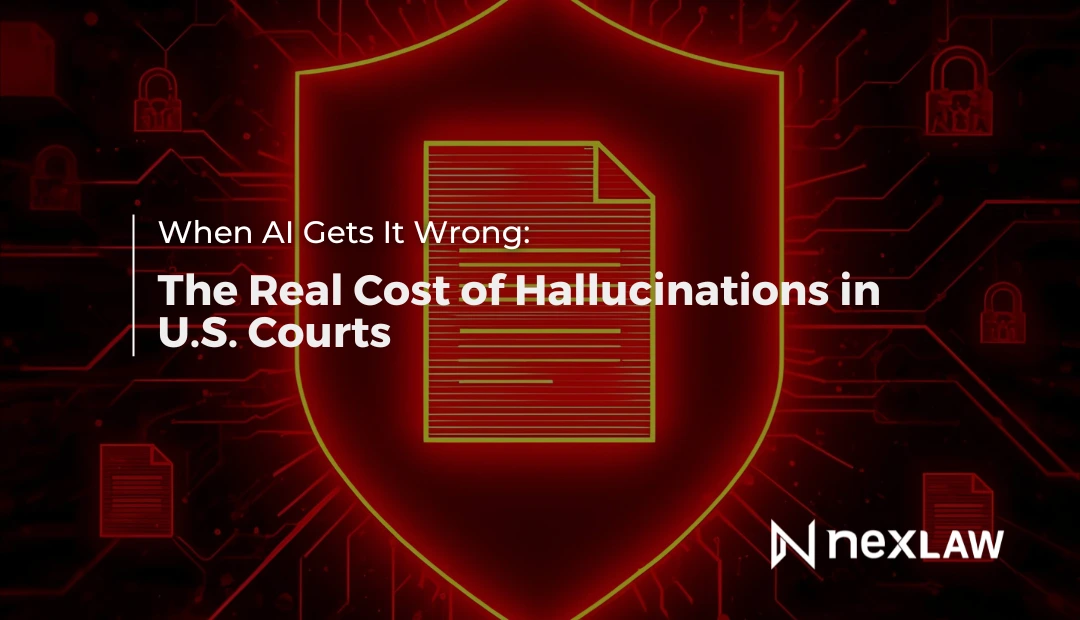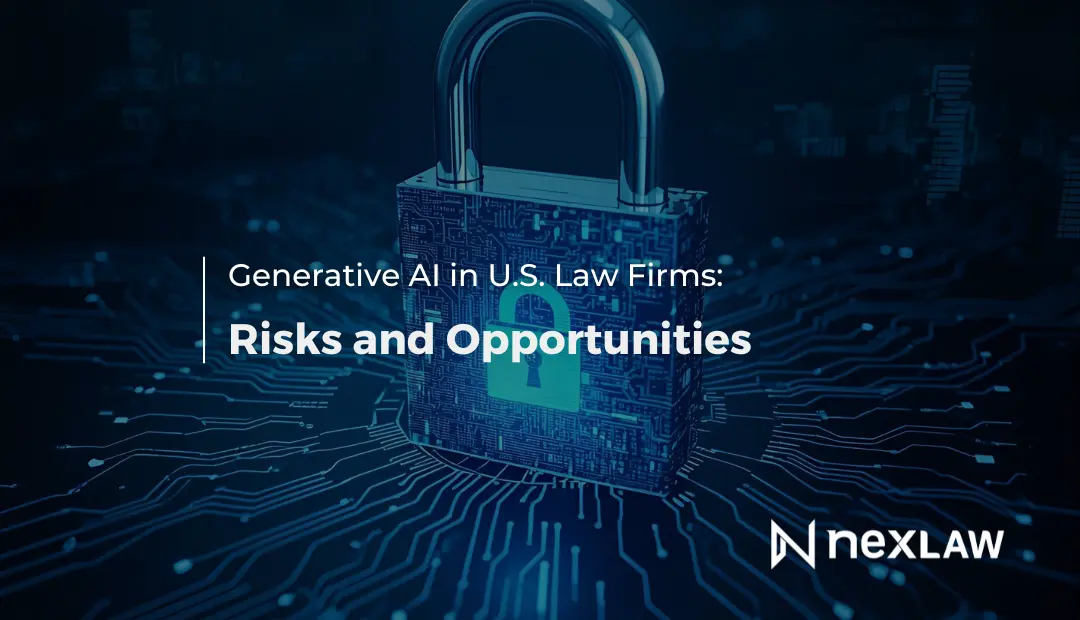Revenue Up, Savings Unclear: U.S. Clients Demand AI ROI
Can AI Really Deliver ROI for Law Firms?
Artificial intelligence has moved from a buzzword to a business reality in U.S. law firms. From automating discovery reviews to drafting briefs and analyzing case law, AI tools are marketed as transformative for efficiency and cost savings.
Unlock Legal Insights Instantly!
But a pressing question is surfacing: are law firms and their clients actually seeing measurable ROI from AI?
Revenue may be rising, but clients increasingly want proof that AI investments lead to reduced costs, greater accuracy, and tangible value in legal services. This shift is pushing firms to justify their AI strategies with transparency and accountability.
AI’s Impact on Legal Workflows
Law firms have integrated AI into multiple aspects of litigation and transactional practice:
- Document Review: AI can scan thousands of pages in discovery to flag inconsistencies or key clauses.
- Drafting Assistance: AI helps generate contract templates, pleadings, or correspondence faster than traditional methods.
- Legal Research: AI tools synthesize statutes, rules, and prior case law into digestible outputs.
- Workflow Automation: Administrative tasks—such as calendaring, deadline reminders, and compliance checklists—are increasingly handled by AI.
These functions promise speed, but speed alone doesn’t guarantee return on investment (ROI). If efficiency gains don’t translate into client savings or firm profitability, the technology risks being seen as a cost center rather than a value driver.
The ROI Dilemma
Many firms report mixed results when evaluating AI investments. For example:
- Drafting speed has improved, but attorneys must still review outputs carefully for accuracy.
- Research tasks may be faster, but without strong verification protocols, results can be unreliable.
- Efficiency improvements don’t always translate into reduced client bills, especially under the traditional billable-hour model.
This creates a dilemma: law firms must show that AI adoption does more than increase internal speed, they must prove it delivers measurable outcomes for clients.
General AI vs. Specialized Legal AI
A significant factor in ROI is the type of AI being used. Many firms experiment with general-purpose tools like ChatGPT, Claude, or Gemini. These models are versatile but were not designed for legal contexts.
Limitations of General AI in Law
- Accuracy Concerns: General AI can generate plausible but fabricated case citations (a phenomenon known as “hallucinations”).
- Confidentiality Risks: Cloud-based AI may store user prompts, raising concerns about attorney–client privilege.
- Lack of Legal Focus: Without training on statutes, rules, and precedent, outputs may overlook critical legal nuance.
These shortcomings mean that time saved on the front end may be lost in the verification stage, eroding ROI and adding risk.
Why Specialized Legal AI Improves ROI
Specialized tools like NexLaw AI are designed specifically for U.S. litigation and transactional practice. Unlike general AI, NexLaw prioritizes accuracy, confidentiality, and compliance, making it better positioned to generate measurable value.
Key Advantages of NexLaw AI
- Verified Legal Data: Outputs are based on curated case law, statutes, and regulations.
- Confidentiality Compliance: NexLaw safeguards sensitive information and does not use client data for model training.
- Litigation-Focused Tools: Tailored features support drafting, discovery, motion practice, and case strategy.
- Ethical Alignment: Built to align with ABA Model Rules and state bar guidance on responsible technology use.
By focusing on verified data and compliance, NexLaw reduces error risk and minimizes attorney review time, improving ROI in a way clients can see and measure.
Competitor Comparison
| Feature | NexLaw AI | ChatGPT / Claude / Gemini | Other Legal Tech Platforms |
|---|---|---|---|
| Legal-Specific Training | ✅ | ❌ | Partial |
| Accuracy for Case Law | High | Variable | Moderate |
| Confidentiality Compliance | ✅ | Limited | Moderate |
| Litigation-Focused Tools | Comprehensive | Generic | Some tools, but not end-to-end |
| Ethical Alignment | ABA & State Bar Standards | No formal compliance | Varies |
This comparison highlights a central truth: general AI may be fast, but NexLaw is accurate, compliant, and designed for ROI in litigation.
The Client Perspective: Demand for Proof
Clients today are more tech-savvy and cost-conscious. They want to know:
- Are AI tools lowering their bills?
- Is the quality of legal work improved?
- Can firms prove accuracy, confidentiality, and compliance?
Without clear answers, clients may resist AI-related fees or push back against firms that can’t demonstrate value. This is why specialized AI like NexLaw is essential, it provides transparency and measurable outcomes, not just speed.
From Speed to Strategy: How AI Becomes ROI
The real ROI of AI isn’t just in faster drafts, it’s in how attorneys use AI to redefine their service models:
- Fixed-Fee Billing: AI efficiency allows firms to offer alternative fee structures with confidence.
- Client Transparency: Verified outputs build trust that results are accurate and defensible.
- Risk Management: Reduced hallucinations and confidentiality protections lower malpractice exposure.
- Strategic Insights: Predictive tools help attorneys craft stronger case strategies, not just faster documents.
When framed this way, AI becomes not just a cost-saving tool, but a strategic differentiator.
Why NexLaw Delivers Measurable ROI
NexLaw was designed with ROI in mind. Its features support measurable improvements in three key areas:
- Efficiency: Streamlines research, drafting, and review, reducing time spent on repetitive tasks.
- Accuracy: Outputs based on verified legal sources minimize costly errors.
- Compliance: Confidentiality and ethical alignment reduce risk and protect firm reputation.
By combining these strengths, NexLaw ensures that firms can present clients with not just faster work but better, safer, and more cost-effective outcomes.
How Firms Can Demonstrate AI ROI
To turn AI adoption into measurable ROI, firms should:
- Adopt Specialized Legal AI: Tools like NexLaw reduce hallucinations and enhance confidentiality.
- Set Internal Metrics: Track time saved on drafting, research, and discovery to quantify efficiency gains.
- Communicate Value to Clients: Show how AI adoption translates into cost savings, faster turnaround, and reliable results.
- Balance Efficiency with Oversight: Require attorney review of AI outputs to maintain quality and ethical compliance.
Conclusion
AI is here to stay in U.S. law firms, but ROI is now the true test of its value. While general AI tools offer speed, they often fall short on accuracy, confidentiality, and legal focus.
Clients are increasingly asking tough questions about whether AI adoption lowers their costs and improves results. Law firms that rely on specialized legal AI like NexLaw are best positioned to answer with confidence.
By combining verified data, confidentiality protections, and litigation-specific tools, NexLaw enables firms to demonstrate measurable ROI, turning technology into a true competitive advantage.
Lawyers who embrace AI today are shaping the legal profession of tomorrow. Whether you’re part of a litigation team, a solo attorney, or a paralegal eager to expand your role, NexLaw makes it possible.
NexLaw is designed to help paralegals and attorneys—solo or from small and mid-size—prepare cases more efficiently, with greater accuracy and strategic insight.
Book a Guided Demo — See how NexLaw fits seamlessly into your practice and transforms your workflows with a quick walkthrough
You can either start your free 3-day trial (no card required) or 7-day trial (card required) to get hands-on right away — Explore NexLaw risk-free and experience firsthand how AI can enhance efficiency, accuracy, and client satisfaction.
*t&c applied | visit our website for more details
With NexLaw, the future of litigation is here - AI-powered, accurate, and accessible.
